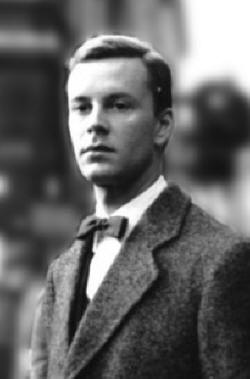Queer Places:
Cemetery of the Porte Sante of the Basilica of
San Miniato al Monte
 Paolo Poli (Florence, May 23, 1929 - Rome, March 25, 2016) was an Italian actor, theater director and singer. Active mainly in the theater, he proposed shows characterized by a strong comic connotation, referring to brilliant, surreal and dreamlike comedies. Poli often acted en travesti.
Paolo Poli (Florence, May 23, 1929 - Rome, March 25, 2016) was an Italian actor, theater director and singer. Active mainly in the theater, he proposed shows characterized by a strong comic connotation, referring to brilliant, surreal and dreamlike comedies. Poli often acted en travesti.
Son of a carabiniere and a teacher, brother of Lucia Poli as well as uncle of the musician Andrea Farri (composer of film soundtracks), after graduating from the University of Florence in French literature (with a thesis on Henry Becque)
he began to establish himself around the 1950s: the first debuts were in small city theaters, such as La Borsa di Arlecchino in Genoa, a small avant-garde theater in via XX Settembre (born also thanks to Aldo Trionfo).
Here Poli began to get noticed for his pungent irony, his polite histrionics, his poetic and surreal vein surrounded by comic moments and linguistic games also appreciated by illustrious comedians such as Tina Pica and Polidor, with whom he had the opportunity to work. In the early
1960s he was the protagonist of a television broadcast on Rai in which he read fairy tales for children, taken from Aesop and famous literary stories. He also worked with Sandra Mondaini on Canzonissima. He refused, as he himself recounts, a part in 8½ proposed to him by his friend
Federico Fellini. His film appearances were very rare, with the exception of his participation in the homosexual-themed documentary Felice chi è diverso (2014) by Gianni Amelio. It was he, at the end of the
1960s, who discovered a very young Marco Messeri: the two would collaborate continuously in the years to come.
He directed and was the main actor of various theatrical works, including Aldino mi cali un filino, Caterina De Medici, The golden donkey, Gulliver's travels, The legend of San Gregorio, The buskin and the slipper, The enemy, Sillabari and above all Rita da Cascia, who, giving a comical and irreverent reading of the story of Santa Rita, gave rise to many controversies, with Oscar Luigi Scalfaro who presented a parliamentary question on the case.
He also starred in various audiobooks, including an edition of Pinocchio, published in 1968 by Fratelli Fabbri Editori, and the unabridged audiobook of Pellegrino Artusi 's recipes, published by Emons Audiobooks. He also cultivated a career as a singer, releasing a first single in 1960 and later several full-fledged albums.
With her sister Lucia, also a theater and film actress, starting in the 1970s
they performed four plays and the screenplay The Three Musketeers, with Marco Messeri and Milena Vukotic. He died on March 25, 2016 at the Fatebenefratelli Hospital in Rome, where he had been hospitalized for about a month due to cerebral ischemia. He is buried in Florence in the Monumental Cemetery of the Porte Sante of the Basilica of San Miniato al Monte.
As he himself recounted in public conferences on his artistic personality, Poli lived as a non-displaced person in Florence under the Nazi occupation, beginning in the early 1940s to deepen his passion for disguise, even on the occasion of public balls. In Italy, he was one of the first openly homosexual public figures.
He claimed to be in favor of same-sex marriages, even though he considered them "boring" and personally not interested in making use of the right.
My published books:


BACK TO HOME PAGE
 Paolo Poli (Florence, May 23, 1929 - Rome, March 25, 2016) was an Italian actor, theater director and singer. Active mainly in the theater, he proposed shows characterized by a strong comic connotation, referring to brilliant, surreal and dreamlike comedies. Poli often acted en travesti.
Paolo Poli (Florence, May 23, 1929 - Rome, March 25, 2016) was an Italian actor, theater director and singer. Active mainly in the theater, he proposed shows characterized by a strong comic connotation, referring to brilliant, surreal and dreamlike comedies. Poli often acted en travesti.
